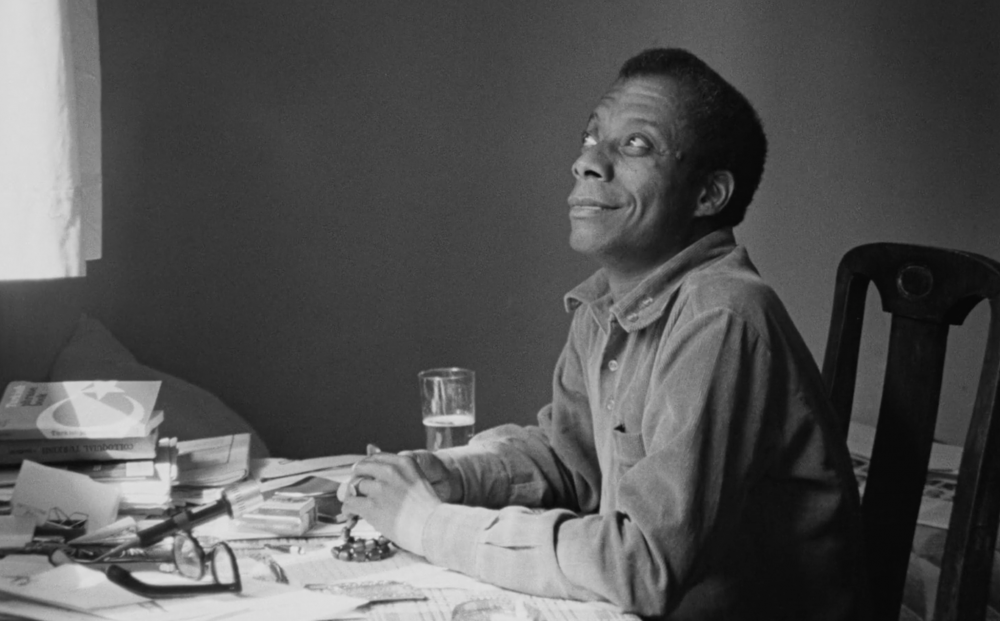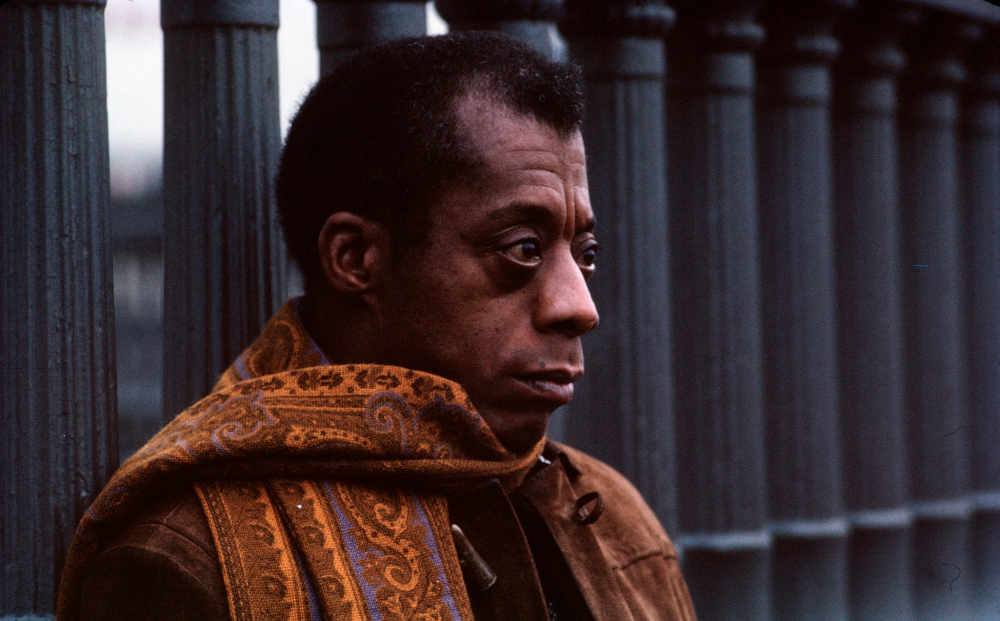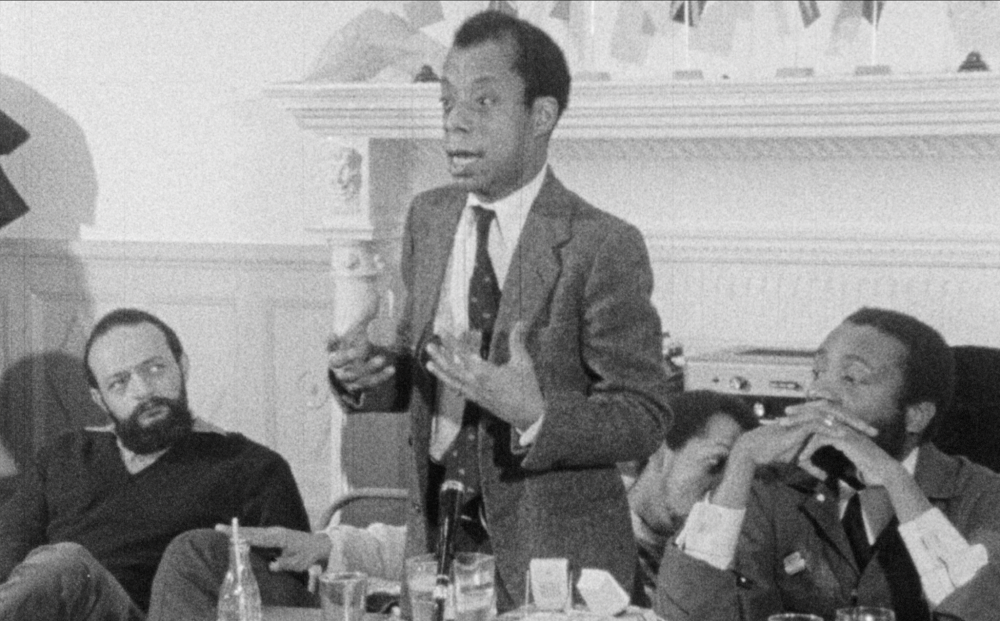JAMES BALDWIN ABROAD:
A PROGRAM OF 3 FILMS
ENDS THURSDAY, JANUARY 26
3:10
JAMES BALDWIN: FROM ANOTHER PLACE (1973) DIRECTED BY SEDAT PAKAY
MEETING THE MAN: JAMES BALDWIN IN PARIS (1971) DIRECTED BY TERENCE DIXON
BALDWIN’S N****R (1968) DIRECTED BY HORACE OVÉ
James Baldwin: the brilliant thinker, writer, and activist whose prescient essays, plays, and novels continue to shine a searing light on American racism 35 years after his death. Born in 1924, in Harlem, Baldwin spent much of his life abroad, and in these three short films — made in Istanbul, Paris, and London (with Dick Gregory) — he can be charming, candid, churlish, witty, and acerbic. Whether ruminating on his own “American-ness,” his experience as a child-minister, Black Power, or the nature of love and sexuality, creativity, freedom, and survival — his unsparing opinions are never less than eye-opening, and his onscreen presence never less than riveting. All three films included in this program have been recently restored.
JAMES BALDWIN ABROAD includes:
JAMES BALDWIN: FROM ANOTHER PLACE
DIRECTED BY SEDAT PAKAY
New restoration
Set in Istanbul, the film opens with a surprisingly candid scene of Baldwin leisurely awakening in his bedroom. Sedat Pakay, a Turkish filmmaker who studied with Walker Evans, is known for his photographic portraits of famous artists and writers, Baldwin among them. Here in Istanbul, Baldwin seems relatively relaxed, walking among crowds in a public park or on the city’s streets. His focus is personal, even intimate: “The life I live is very different from what people imagine. I love a few men. I love a few women. Love comes in many strange packages; it never comes to you as you think it will. I think the trick is to say yes to life.” He speaks of how difficult it is concentrate and to write in the United States and says that “American men are paranoiac on the subject of homosexuality.” The film offers us a self-reflective James Baldwin, one who fearlessly examines his most private thoughts and feelings.
Preserved by the Yale Film Archive with support from the National Film Preservation Foundation.
1973 12 MIN. TURKEY CINEMA CONSERVANCY
MEETING THE MAN: JAMES BALDWIN IN PARIS
DIRECTED BY TERENCE DIXON
New restoration
Shot in Paris, a city in which Baldwin lived for nine years after leaving New York — a decision he has described “as a matter of life and death.” The early sequences find Baldwin uncooperative, even hostile to the British director and cameraman, clearly resenting their controlling role. He brings them to the Bastille, whose significance he explains: “They tore down this prison… I am trying to tear a prison down too. When a white man tears down a prison, he is trying to liberate himself. When I tear down a prison, I am simply another savage. What you don’t understand is that you for me are my prison guard, you are my warden. I am battling you, not you Terry, but you the English, you the French.”
“A stunning portrait of meta-textual tension…. filled with ingenious, subtle references to the absurd approach the white filmmakers in the room have taken in trying to bottle his perspective for mass consumption.… An invaluable and pertinent insight into the man’s disarming, enrapturing worldview, and a testament to his resilience, unparalleled intellect, and unreserved pride in the face of all the world had to throw at him.”- Nathaniel Brimmer-Beller, Film Daze
Picture and audio restoration by Mark Rance, Watchmaker Films, London.
1971 26 MIN. UK / FRANCE FILM DESK
BALDWIN’S N****R
DIRECTED BY HORACE OVÉ
New restoration
Called “the Godfather of Black British filmmaking,” documentarian Horace Ové films Baldwin at the top of his game, in good spirits, joining his friend, comedian/activist Dick Gregory, at the West Indian Student Centre in London. Baldwin speaks movingly of the historical antecedents of his life and that of other Black Americans: “My entry into America is a bill of sale. I became Baldwin’s n****r. I was formed in a certain crucible. My frame of reference is George Washington and John Wayne.” Speaking of slavery’s reality he avers: “I discover those songs darkies sang were not just the innocent expressions of primitive people, but extremely subtle, difficult, dangerous, and tragic expression of what it felt like to be in chains.”
Restoration courtesy of the British Film Institute.
1968 46 MIN. UK JANUS FILMS
With support from The Richard Brick, Geri Ashur, and Sara Bershtel Fund for Social Justice Documentaries, the Roy Lichtenstein Foundation Fund, and the Ada Katz Fund for Literature in Film.
Special thanks to Jake Perlin (Film Desk/Cinema Conservancy), Ashley Clark (The Criterion Collection), Emily Woodburne (Janus Films), Andrew Adair (Cinema Conservancy), and Brian Meacham (Yale Film Archive).
Reviews
On this program of (3) short films:
“All three films show Baldwin uniting creation and activism in an overarching calling that he describes as the bearing of witness.”
– Richard Brody, The New Yorker
“Gives us an opportunity to examine this critical period in Baldwin’s adult life — to see how distance from his home country changed how the writer saw himself in relation to the world and helped him diagnose the unrelenting drama of American racism.”
– Lovia Gyarkye and Sheri Linden, The Hollywood Reporter
“Here we have Baldwin himself, interacting with friends, acquaintances and, in one electrifying case, a hapless director… he’s invisible… he’s commanding attention, center stage, strutting and beaming. He’s uprooted, the stranger, and yet where he belongs.”
– Sheri Linden, The Hollywood Reporter
On FROM ANOTHER PLACE
“In just twelve minutes [FROM ANOTHER PLACE] shows us what a documentary can do when it neither tries to shape the artist to certain preconceived ideas.”
– John Talbird, Film International
“This cinematic gem records the writer’s movements through the city of Istanbul over a three-day period in May 1970 and frames [Baldwin] with seductive photography of private interiors, city streets, and a boat ride on the Bosphorus.”
– Magdalena J. Zaborowska, James Baldwin’s Turkish Decade: Erotics of Exile
On MEETING THE MAN: JAMES BALDWIN IN PARIS:
“A stunning portrait of meta-textual tension. In 1970, British documentarian Terence Dixon and cameraman Jack Hazan traveled to Paris to make what they believed was an intimate portrait of world-renowned cultural icon James Baldwin. Hazan focuses very closely upon the writer’s face, and the tension ratchets up to a stupefying level. Dixon inadvertently presents himself as Exhibit A of the hopelessly ill-prepared, cocksure white filmmaker, who barges into Black spaces as if hunting an exotic beast… The second section takes place (in a) warmer atmosphere which puts Baldwin more at ease, leading to some thoroughly compelling monologues filled with ingenious subtle references to the absurd approach the white filmmakers in the room have taken in trying to bottle his perspective for mass consumption… (The film) is an invaluable and pertinent insight into the man’s disarming, enrapturing worldview, and testament to his resilience, unparalleled intellect, and unreserved pride in the face of all the world had to throw at him. Baldwin’s grace and presence make this a compelling and worthwhile piece.”
– Nathaniel Brimmer-Beller, Film Daze
On BALDWIN’S N****R:
“From skateboarding to reggae, from carnivals to police brutality, (Horace) Ové blazed a trail through cinema. (He) is known as the godfather of Black British film-making… If Horace has a style, it would sit somewhere in the reportage school. He is a documentarian at his core. His camera rarely intrudes. He sets it up to bear witness. He wants his subjects to speak for themselves, to reveal the complexities of their lives. ‘I’m interested in people that are trapped,’ he once said. ‘The trap that we are all in and how we try to get out of it.’”
– Lennie James, The Guardian (UK)



